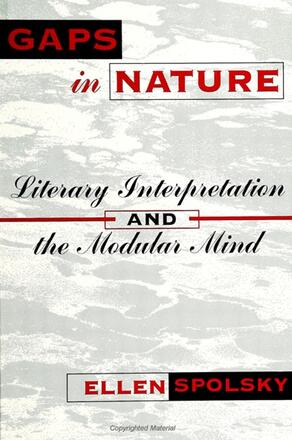
Gaps in Nature
Literary Interpretation and the Modular Mind
Alternative formats available from:
Description
This book is a study of the relation between cognitive linguistics and literary theory. Theory of literary interpretation is reinterpreted in terms of current debate in cognitive science. While research in the humanities and social sciences is reasonably concerned with charting the power of culture to structure and constrain, Spolsky suggests that it is worthwhile to investigate the role of biological materialism as co-legislator of human life and understanding. The inevitable slippage we have come to acknowledge between words and the world has at least an analogue, and presumably also a source, in the workings of the human brain.
Ellen Spolsky is Associate Professor of English and Director of the Lechter Institute for Literary Research at Bar-Ilan University, Israel.
Reviews
"Cognitive Science is arguably the most important intellectual development of the post World War II period. Literary theory, however, has failed almost completely to cope with this fundamental change in the intellectual climate. Spolsky's book is a pioneering effort in this regard. The argument is adventuresome and fresh. Unlike so much of the work which is now being published, it is not a rehash of a re-hash, etc. This is news.
"It deals significantly with a literature from a wide-range of historical periods and with a number of important literary theoretical positions—feminism (most notably, consistently, and insightfully), New Historicism, Marxism, Deconstruction, and psychoanalysis. " — Don Byrd, State University of New York at Albany
"The idea that art grows from an inherent attribute not only of mind but of the physical brain gains special poignance in the context from which the author views it: as an explanation of the enduring power and compulsiveness of the literary based in the biological urgency in the structure of mind/brain to fill in the gaps. For literature, biology is also destiny. " — David Porush, Rensselaer Polytechnic Institute